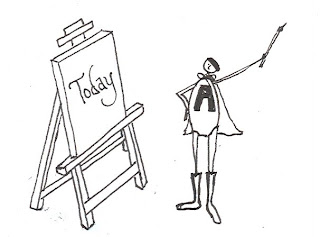
Pablo Picasso is known to have said, “Every child is an artist. The problem is how to remain an artist once he grows up.” If I were going to pick nits with Picasso, I would ask, “But what exactly do you mean by ‘artist?’” All right, we all know what he meant by artist, more or less, but I’m a writer, not a painter or sculptor or mask maker, so I’m perhaps more finicky when it comes to words, and as far as I can tell, we all remain artists until the day we die.
I’m thinking specifically of a certain split within the writing and publishing world. It is not always as clear a split as we might think, but it is one that periodically warrants a cantankerous article in, say, the NY Times Sunday Review of Books from either one side or the other. I am talking, of course, about the commercial/literary divide.
A friend of mine, who had made a living writing war novels and science fiction and thrillers, explained to me, “Basically, I write entertainment.” Fine. So he was commercial. But this was also the same man who said, “In the end, you’ve got to dance to your own tune.” This is where it starts getting murky for me.
When we say artist—or in the case of writers, literary—we imagine someone who listens obediently to his or her muse and renders this song as faithfully as possible. Perhaps it will be popular, perhaps it will not; all that matters is the writer’s fealty to the song. Commercial writers, on the other hand, are technicians who slavishly craft their work for maximum popularity. The commercial writer gives The People what they want, and is financially rewarded for it.
There is a tendency then to admire those we call artists more than those we call entertainers, but for good reasons—namely, we all want to be free to make our own choices unburdened by the opinions of others or the demands of money and safety. For who has not dated the handsome but shallow man, stayed at a miserable job for the insurance, or hidden an unpopular opinion behind silence at a dinner? Everyone I have ever known struggles daily to bring themselves forward as fully as possible amid all the elbows and hurly-burly of life, and everyone I know feels some regret that they’ve shaved edges here and there, held their tongue, compromised their ideals, all in the name of safety—either emotional or physical.
Thus, as Joyce would have it, there is the artist as hero. The hero is always the one willing to risk his or her own safety for what is right. But I maintain that everyone is an artist. All an artist does, be he Sidney Sheldon or Vladimir Nabokov, is ask, “What do you I want?” and then answer that question as honestly as possible. And there is only one source for all those answers, and only one person gets to judge whether he or she has answered honestly, and that someone happens to be the one doing the asking.
It is not for me to judge whether anyone else has listened to their muse. I could just easily mimic what I believe literary readers want as what commercial readers want and be wildly successful in not answering what it is I want. Everyone, whether or not they ever write a poem or book, whether or not they ever paint a picture or compose a ballad, everyone is doing their absolute level best to answer as faithfully as possible that one continuous question, only with varying degrees of success. Everyone wants to answer honestly, but very, very few can all the time. That is why, for me, compassion is far more useful than criticism, and, in the end, probably more honest.
Because everyone is painting their life, everyone is writing their days, and everyone goes to bed wondering, “Was that what I wanted today?” And everyone wakes up asking, “What is it I want for this day?” It’s a great question, one that we artists must answer over and over again.
